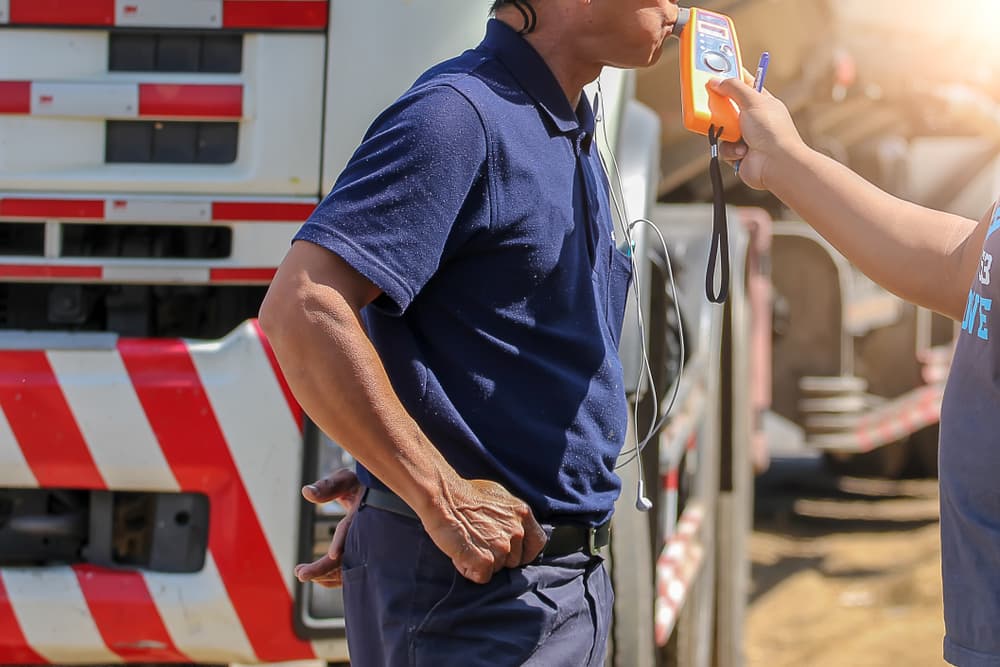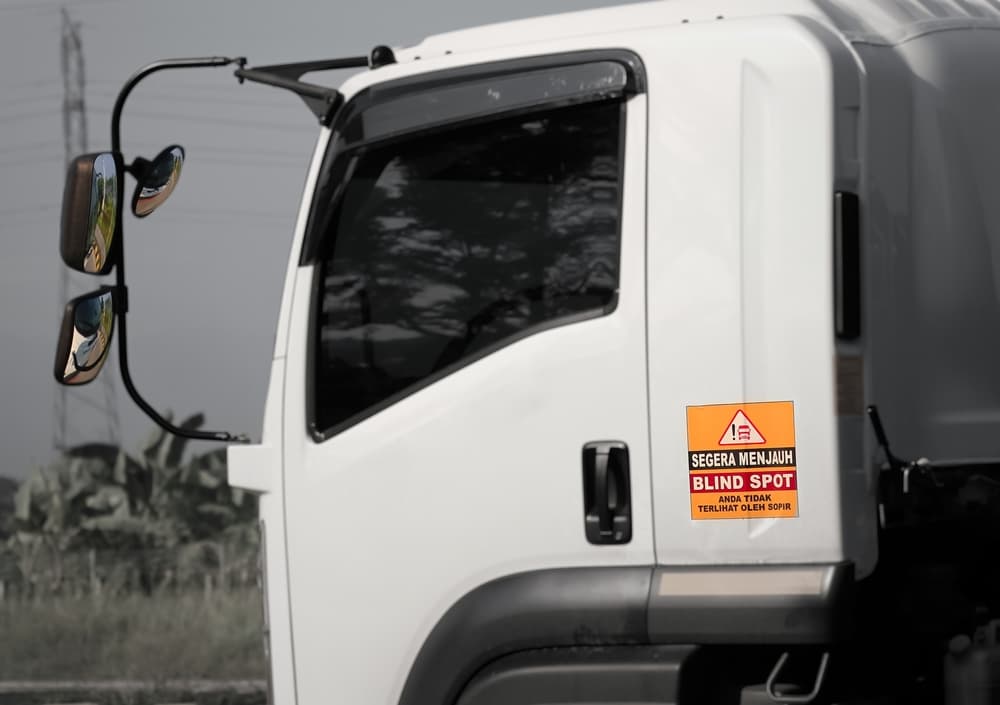After an accident with a commercial truck, you may wonder - when is the trucking company liable for my injuries? The sad reality is that negligence or wrongdoing by the trucking company or truck driver causes many truck accidents.
If you suspect the trucking company's actions (or inaction) contributed to your crash, speak with an experienced truck accident lawyer right away to discuss your legal rights and options for seeking compensation.
Schedule a Free Initial Consultation Today!
What Makes Trucking Companies Liable?
In general, trucking companies have a duty to operate in a safe manner and to ensure their vehicles and drivers do not pose unreasonable risks to others on the road. When they fail in these responsibilities, leading to preventable accidents and injuries, they can be held legally liable.
Some of the most common ways trucking company negligence leads to crashes include:
Negligent Hiring of Unfit Drivers
Operating a commercial truck is a big responsibility that requires a special set of skills and a strong commitment to safety. These massive vehicles can weigh up to 80,000 pounds and measure over 70 feet long. When fully loaded, they can take the length of a football field to come to a complete stop.

In the wrong hands, they can kill.
That's why trucking companies have a legal and ethical duty to be very careful about who they allow behind the wheel. They need to thoroughly vet potential drivers, looking closely at their employment history, driving record, criminal background, and other key information.
Only applicants with clean records, proper licensure, and the right experience should make the cut.
Trucking companies also need to make sure the drivers they hire have the right personality and temperament for the job.
Trucking companies must screen out candidates with anger issues, a history of substance abuse, or an inability to handle stress and long hours on the road. The demanding job requires focus, patience, and the ability to stay calm in challenging situations.
Sadly, some trucking companies ignore these responsibilities. Whether it's because they are lazy, cheap, or desperate for warm bodies to fill seats, they skimp on background checks and let unfit drivers slip through the cracks. It's a disaster waiting to happen.
For example, a trucking company that hires a driver with a history of DUIs puts everyone on the road at risk. If that driver causes a crash while under the influence, you can hold the company liable for putting profits over safety and hiring someone who it never should have trusted with an 18-wheeler.
The same is true for companies that retain drivers who start displaying unsafe behaviors after they hire them. If a driver repeatedly breaks traffic laws, gets into accidents, or shows up to work intoxicated, the company needs to intervene. Turning a blind eye to red flags and leaving a dangerous driver on the road constitutes negligence.
Some companies use sneaky tactics to avoid liability for negligent hiring, like classifying drivers as independent contractors rather than employees. Don't fall for it. Regardless of what they call their drivers, trucking companies must ensure the people operating their vehicles are fit to do so safely.
If a truck driver with a checkered history that should have disqualified them from the job injures you, you need to hold the trucking company accountable. Their negligent hiring practices may have caused your suffering. An experienced truck accident attorney can build a strong case and pursue the compensation you deserve.
Pushing Drivers to Violate Hours of Service Rules
Drowsy driving is a major problem in the trucking industry. To meet tight delivery deadlines and keep goods moving, some trucking companies pressure their drivers to spend too many hours behind the wheel without adequate rest breaks. This is not only unethical, it's illegal.
Truck drivers are bound by hours of service (HOS) regulations that dictate how long they can drive in a stretch, how many hours they can work per day/week, and mandatory break periods.
These rules exist to keep sleep-deprived, inattentive truck drivers off the roads.
Trucking companies that encourage or force drivers to violate HOS rules put everyone at risk. If an overly fatigued trucker nods off and causes a crash, you can hold the company liable.
Failing to Properly Maintain Trucks
Eighteen-wheelers and other commercial trucks travel hundreds of thousands of miles per year, often in challenging conditions. Proper inspection and maintenance is the key to keeping these hard-working vehicles in safe operating condition.
Trucking companies are required by law to systematically inspect, maintain, and repair their trucks. Failing to do so can lead to problems like:
- Worn-out brakes that can't stop the truck in time
- Bald or defective tires that are prone to blowouts
- Broken headlights/taillights that reduce visibility
- Faulty coupling devices that allow trailers to detach
- Cracked windshields, mirrors, and other vision obstructions
When poor truck maintenance leads to mechanical failures and accidents on the road, you can hold the trucking company accountable for neglecting their vehicles.
Overloading Trailers or Improperly Securing Cargo
An overloaded trailer is extremely dangerous. The excessive weight can cause tire blowouts, brake failures, difficulty steering, and longer stopping distances - all of which increase the risk of a crash. Strict rules govern maximum truck weights and how to distribute and secure cargo.
Some trucking companies skirt these rules to increase their loads and profits. If an overweight or improperly loaded truck is involved in an accident, the trucking company may be liable for negligence. This is also true if unsecured cargo shifts during transport or falls off the trailer into the roadway, causing a crash.
Negligent Supervision and Retention of Problem Drivers
Trucking companies have a duty to not only screen drivers carefully before hiring, but to adequately supervise them once they are on the job. If a company learns that one of its drivers violates traffic laws, drives in an unsafe manner, or is otherwise unfit to drive, they must take action. Turning a blind eye to problem drivers can have devastating consequences.
For example, if a driver fails random drug and alcohol tests but the trucking company allows them to keep driving, you can hold the trucking company liable for a subsequent DUI crash.
The same holds for drivers who rack up speeding tickets, were in prior preventable accidents, or engage in other dangerous behaviors. Retaining drivers who have demonstrated they are unfit for the job constitutes negligence.
Inadequate Driver Training
Operating a commercial truck is nothing like driving a regular passenger car. It requires specialized skills and knowledge of things like defensive driving techniques, proper braking methods, and safely securing loads.
Trucking companies owe the public a duty to properly train their drivers in all aspects of safe truck operation. Putting an inadequately trained driver on the road and hoping they'll learn as they go constitutes incredible recklessness.
If insufficient driver training contributes to a crash, you can hold the trucking company liable for not providing the tools and information needed to operate the truck safely.
Unrealistic Expectations and Delivery Schedules
Trucking is a deadline-driven industry where time is money. While trucking companies want to run an efficient operation, some create unrealistic, unsafe schedules.
Expecting drivers to meet delivery windows that would require them to speed, skip mandatory rest breaks, or otherwise drive in an unsafe manner is negligent. It sets the driver up for failure and accidents. If a trucking company's unreasonable expectations contribute to an accident, you can hold them liable.
Ignoring Warning Signs of Driver Impairment
Driving a truck is stressful, demanding work. The long hours and isolation can take a toll on drivers' mental and physical health. Issues like sleep apnea, diabetes, high blood pressure, addiction, and depression are common among truckers.
Trucking companies have a responsibility to watch for signs their drivers are struggling and may be unfit to drive. For example, if a company notices sudden changes in a driver's performance, hears concerns that the driver abuses alcohol/drugs, or sees evidence of a profoundly fatigued or depressed driver, they need to intervene.
Ignoring red flags and allowing an impaired driver to get behind the wheel constitutes incredibly irresponsibility. If that driver goes on to cause an accident, you can hold the trucking company accountable for staying quiet despite knowing the risks.
Trucking Company Liability in Specific Types of Accidents
There are many different types of truck accidents, each with its own unique considerations when it comes to trucking company liability.
Some of the most common include:
Blind Spot Accidents

Commercial trucks have massive blind spots on all four sides, particularly on the right-hand side and directly behind the trailer. If a car travels in these blind spots, the truck driver may crash into them when changing lanes or turning because they simply cannot see the smaller vehicle.
In general, truck drivers need to check their blind spots before maneuvering to avoid collisions. If a trucking company failed to train the driver on safe lane changes, the right way to use mirrors, or the location of blind spots, you can hold them liable for a crash.
Hours of Service Accidents
If a crash happens because a truck driver fell asleep at the wheel or was extremely fatigued after violating hours of service rules, you can hold the trucking company responsible. This is especially true if there is evidence the company actively encourages HOS violations or simply looks the other way to keep their trucks on the road longer.
Unsecured Load Accidents
As discussed above, shifting or falling cargo can lead to devastating crashes. Trucking companies often try to pin the blame on third parties like loading crews when this happens. Don't let them get away with dodging responsibility.
In many cases, trucking companies are still liable because they failed to double-check that the load was properly secured, ignored signs of an unstable load, or used defective tie-downs and securement devices. Their drivers must inspect the load at regular intervals and fix problems before they lead to accidents.
Tire Blowout Accidents
Tire blowouts are incredibly dangerous on large trucks. The truck may swerve violently into other lanes, cross the median, or drive off the road entirely in a matter of seconds, often with disastrous results. Even if the driver manages to safely stop the truck, the tire debris left behind in the road can cause serious accidents.
Many tire blowouts are the result of improper truck maintenance. The trucking company is responsible for regularly inspecting and replacing worn, damaged, or defective tires. If their failure to do so leads to a blowout accident, you can hold them liable.
Lost Load Accidents
It's a terrifying sight - a truck's cargo falling off into the roadway, striking other cars, or causing them to swerve and crash. Lost load accidents almost always result from negligence, either by the trucking company, loading crew, or the driver.
Trucking companies may try to deflect responsibility by pointing fingers at others. Don't fall for it. They must properly load their trucks and ensure any third parties do the job correctly. Their drivers must also perform regular load checks to catch problems before accidents occur.
How Can a Truck Accident Attorney Help?
If an accident caused by a negligent trucking company hurt you or a loved one, you need an experienced truck accident attorney on your side. These complicated cases involve multiple parties, extensive records, and aggressive tactics by trucking companies to avoid liability.
A skilled attorney can help you gather the right evidence and build a strong case for maximum compensation. An attorney will also stand up to the trucking companies and their insurers, who may try to downplay their responsibility or pressure you into a lowball settlement.
Most importantly, an attorney can take the burden of pursuing a legal claim off your shoulders so you can focus on healing and putting your life back together after a devastating crash. You don't have to go through this alone - contact a knowledgeable personal injury lawyer today for your free consultation.




























